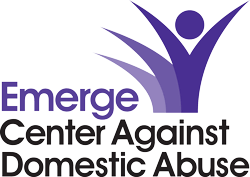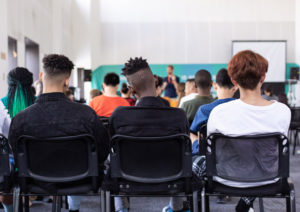
June 2019
Healthy relationships are critical to the strength and future of our community, and should be celebrated in all forms. As part of that community, we all have a responsibility for building a culture that supports the health and safety of every person in Pima County.
Domestic Abuse in LGBTQ Relationships
As with all intimate partner relationships, the majority of LGBTQ relationships are non-abusive, but domestic abuse does happen. While nearly all forms of relationship violence are under-reported, LGBTQ communities are one of the many groups where this is especially the case.
The unfortunate silence surrounding the issue of domestic abuse in LGBTQ relationships often results in limited access to resources for those reaching out for help. LGBTQ survivors of abuse can face additional barriers to reaching out for help.
For example, for those who have not yet disclosed their sexual orientation or gender identity publicly, their partner’s abusive behavior may include threatening to “out” them to their family, friends or workplace.
For LGBTQ parents, their partner’s abusive behavior may include threatening to take away their children. Additionally, some states do not allow both same-sex parents to adopt their children, which may leave the person experiencing abuse with no legal rights should they choose to separate from the relationship.
It’s a common experience for LGBTQ survivors to be met with exclusion and revictimization when reaching out for help to community service providers. It’s important for social service agencies, hospitals, housing providers, law enforcement agencies and the criminal justice system to continue to evaluate their policies and procedures to respond in the most supportive way possible, and ensure full and equal access to services for all survivors seeking help. It is also important that service providers reduce gender stereotyping, the assumption that the partner who “appears” more masculine is the one using abusive behavior. This harmful assumption can make it difficult for victims of abuse with a masculine gender expression to feel supported and believed.
Transgender Communities
According to Julian K. Glover, a researcher at Northwestern University, African-American transgender women have an average life expectancy of 35 – 37 years old. There are many elements that contribute to this startling statistic, including underemployment, exclusion by social service providers, cultural marginalization, familial rejection and exclusion from healthcare services—as well as intimate partner violence.
In fact, the cause of death for one in six transgender individuals is being murdered by an intimate partner. A study conducted in 2015 of over 27,000 transgender people living in all 50 states found the following:
- 54% reported experiencing intimate partner violence
- 47% experienced sexual assault
- 72% of those included in the study who were also homeless reported that intimate partner violence was the reason for their homelessness.
Due to many complex barriers that transgender people (particularly, transgender women of color) face, they are often forced to stay in abusive intimate partner relationships. Forms of abuse unique to relationships where one person identifies as transgender may include:
- Threatening to “out” a transgender person’s identity at the workplace or to family
- Denying that they are a “real” man or woman
- Shaming their physical features
- Intentionally calling them the wrong pronoun, or using an offensive pronoun (such as “it”)
- Denying them access to starting or continuing medical treatment (especially if the medical insurance is held by the partner using abusive behavior)
You can also find the transgender-specific power and control wheel here, which further explains the tactics used to control, coerce and commit violence in relationships.
 It’s Up to All of Us
It’s Up to All of Us
LGBTQ communities continue to demonstrate that love is stronger than hate. As individuals, regardless of sexual orientation or gender identity, we all must be part of the solution to achieve equality and safety. Straight, cisgender members of our community can make an impact by listening to the needs of LGBTQ communities, standing together and working to become allies. It is only when the majority of our community takes action that we can achieve the culture change needed to ensure justice for all in Pima County, and that starts with each of us. Becoming informed about the needs of different marginalized communities is the first step to becoming a loud, public voice for those whose needs are too often made invisible. Together, we can create safety.
Services for All at Emerge
Everyone deserves to be safe in their relationships and Emerge provides services and support to anyone experiencing domestic abuse. Our services are available to anyone regardless of gender identity, sexuality, race, nationality, religion or ability. If you or someone you know is experiencing abuse and has experienced discrimination in reaching out for help, call the Emerge Hotline at 520.795.4266.

